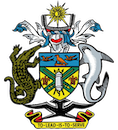The Constitution of Solomon Islands prescribes the following primary functions to the Office of the Ombudsman of Solomon Islands (OOSI):
- To enquire into the administrative conduct of public bodies and investigate instances of maladministration by members of those bodies including the Royal Solomon Islands Police Force (RSIPF), the Correctional Service (CSSI), the Honiara City Council (HCC), provincial governments, and such other offices, commissions, corporate bodies or public agencies as may be prescribed by Parliament;
- To assist in the improvement of practices and procedures of public bodies; and
- To ensure the elimination of arbitrary and unfair decisions.
Furthermore, the Constitution and the Ombudsman Act 2017 also identify the public bodies and officers who cannot be investigated by the Ombudsman.
Functions and Responsibilities under the Ombudsman Act
The Constitution provides for additional functions to the Ombudsman’s primary functions through an Act of Parliament. The Ombudsman Act 2017 is the current Act that prescribes these additional functions which are:
- Power to investigate complaints about contractors of a public body, agency, commission or board whether they be a private individual or a company;
- Power for the Ombudsman to delegate his authority to an appointed Office staff member in his absence;
- Authority to act as the accountable officer for the Office’s account head under the national budget in accordance with the Public Financial Management Act 2013;
- Authority to enter into a lawful arrangement with another public body for purposes of carrying out the Office’s functions;
- Authority to accept complaints from third parties on behalf of a complainant;
- Requirement to maintain a Complaints Register to record all complaints received by the Office;
- Requirement to refer complaints that the Ombudsman cannot enquire into on to the relevant authority for investigation either prior to or during investigations;
- Requirement for Prime Minister to table in Parliament any investigation report received from the Ombudsman within 6 sitting days from time of receipt;
- Obligation for the Ombudsman to inform complainants about how their complaint is being dealt with by his Office; and
- Obligation for the Ombudsman to accept verbal complaints and to instruct his officers to put such complaints down in writing.
The new Act also defines the privileges and protections afforded to those who disclose information to the Ombudsman’s Office including confidentiality protection for complainants, and defines offences that may be committed as a result of information disclosure to the Ombudsman’s Office such as offences for providing misleading information.
